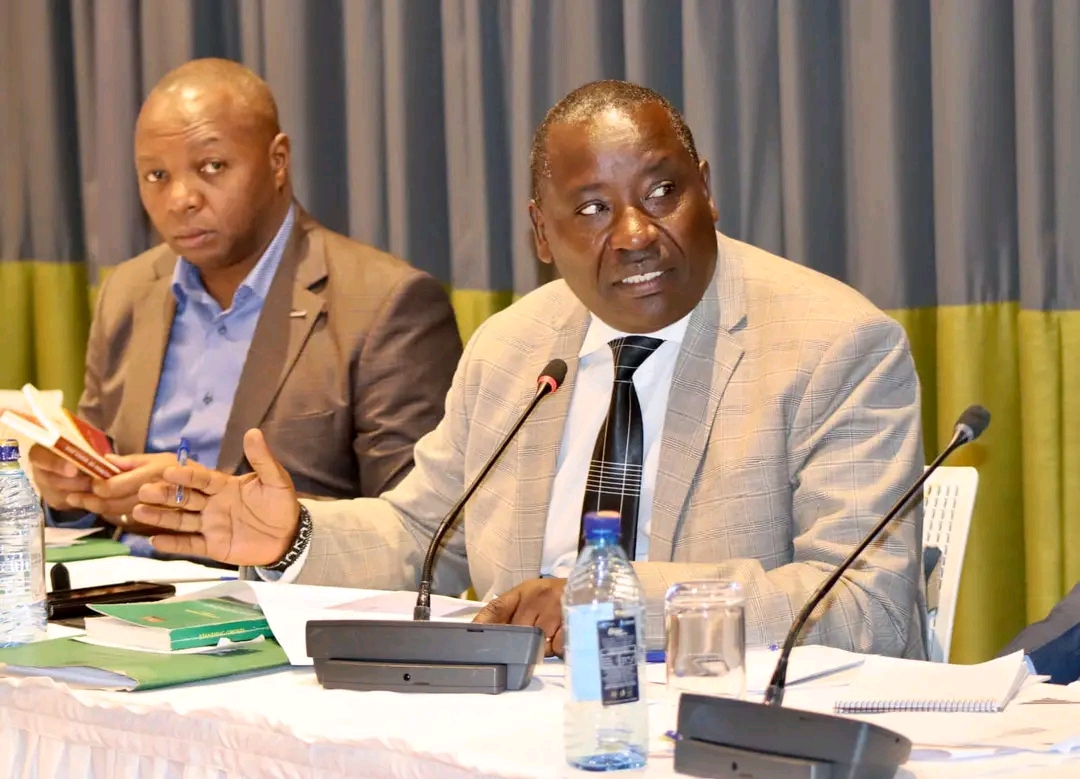𝐏𝐔𝐁𝐋𝐈𝐂 𝐃𝐄𝐁𝐓 𝐀𝐍𝐃 𝐏𝐑𝐈𝐕𝐀𝐓𝐈𝐙𝐀𝐓𝐈𝐎𝐍 𝐂𝐎𝐌𝐌𝐈𝐓𝐓𝐄𝐄 𝐑𝐄𝐂𝐄𝐈𝐕𝐄𝐒 𝐒𝐔𝐁𝐌𝐈𝐒𝐒𝐈𝐎𝐍𝐒 𝐎𝐍 𝐓𝐇𝐄 𝐏𝐔𝐁𝐋𝐈𝐂 𝐃𝐄𝐁𝐓 𝐌𝐀𝐍𝐀𝐆𝐄𝐌𝐄𝐍𝐓 𝐀𝐌𝐄𝐍𝐃𝐌𝐄𝐍𝐓 𝐁𝐈𝐋𝐋
The Public Debt and Privatization Committee received submissions from different stakeholders in regards to the Public Finance Management (Amendment) Bill, (2023).
The PFM Amendment Bill seeks to amend PFM Act (No. 18 of 2012), by adjusting the framework for monitoring public debt and borrowing, and to align the Act with the provisions of the Constitution relating to definition of public debt, financial obligations and amend the debt limit.
Further, the Amendment Bill seeks to provide provisions for the Cabinet Secretary in charge of the National Treasury to provide an explanation to Parliament, in case public debt exceeds the debt threshold.
In the submissions, The Institute for Social Accountability (TISA) under the Okoa Uchumi Campaign expressed their reservations on the proposed deletion of the word ‘public’ in the words ‘county public debt’. They argued that the use of ‘public’ is important in ensuring that Governments retain fidelity to members of the public on whose behalf they acquire and appropriate debt.
The Institute of Economic Affairs (IEA) raised an issue with the amendment of Section 6 (b) that seeks to delete section 31 (6) of the PFM Act for the Cabinet Secretary for Finance to charge debt costs to any other fund apart from the Consolidated Fund. They argued that this clause would provide discretion and authority to the Cabinet Secretary to exceed powers intended by Article 214 (1) of the Constitution.
The Institute of Certified Public Accountants of Kenya (ICPAK) while presenting their memoranda raised concerns on the exponential growth in total public debt, proposing a consideration by the Government to move away from commercial loans and to consider public-private partnerships as a form of financing development expenditure.
The session was chaired by the Committee's Vice-Chairperson Hon. (Dr.) Makali Mulu.
















